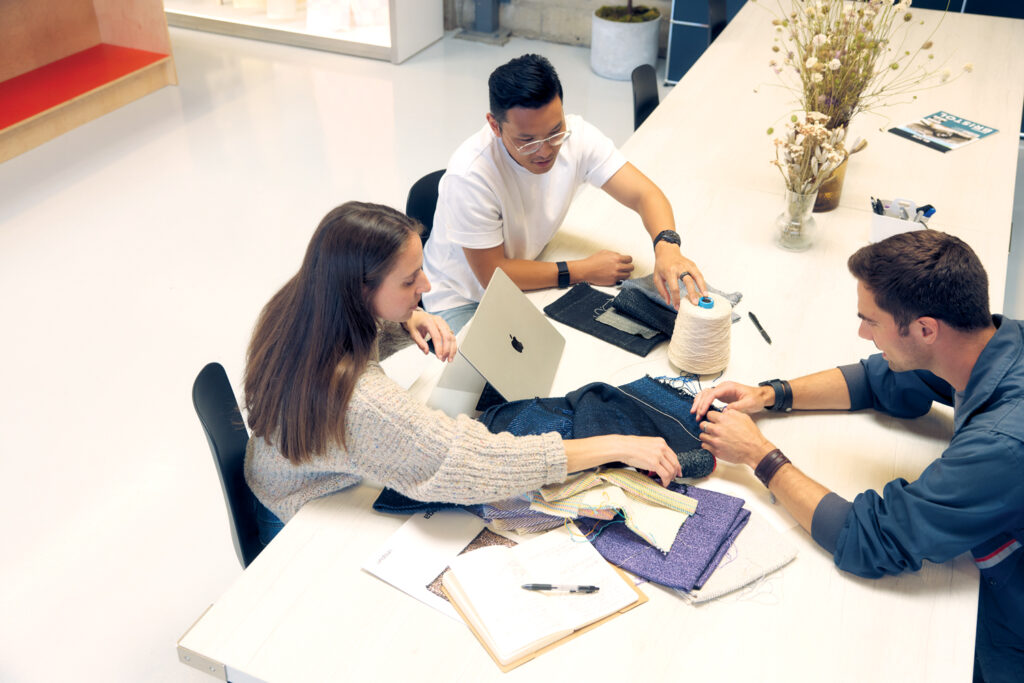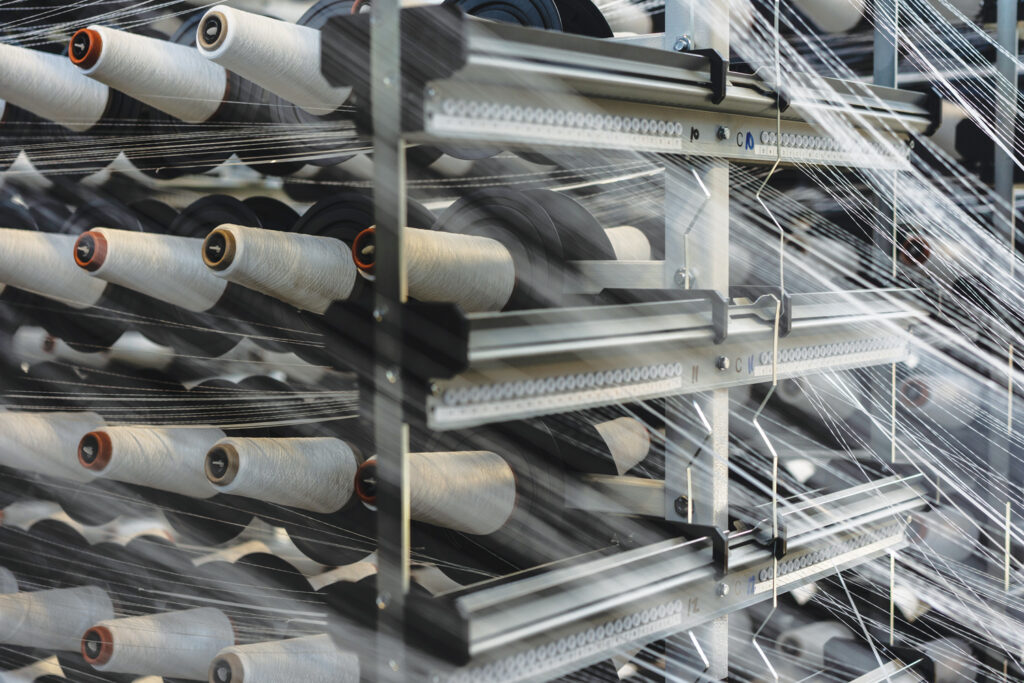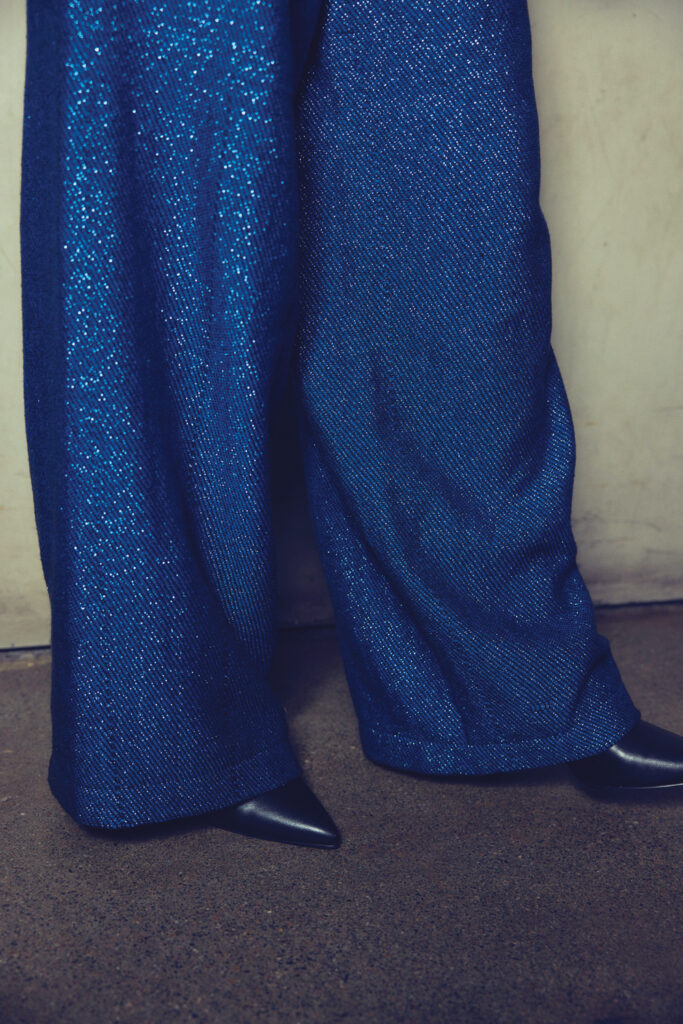
Producing less by design means less wasted or discarded product on the back end, saving resources and time on the front. Denim in particular is also a significant player when it comes to water pollution. Technology company unspun tackles those environmental issues with custom-fit on-demand jeans sold directly to consumers and its Vega™ automated 3D weaving machines geared for clothing brands.
Establishing microfactories will give brands more control over how much clothing they produce and where. Instead of companies placing large orders based on trend and quantity guesswork that results in mounds of textile waste, localized on-demand manufacturing can produce smaller batches with shorter lead times (no waiting for container ships and trucks, fewer transport emissions, and less dye, chemical and water usage).

The Vega 3D weaving machines use robotic technology to create a pair of pants in less than 10 minutes, directly from yarns, with finishing steps to follow. No patterning or cutting also means no fabric scraps.
A recent $14 million investment led by Lowercarbon Capital and other organizations focused on climate tech is supporting the scaling of Vega. unspun is building its first microfactory in Oakland, Calif., that will have several Vega machines.
“It’s a technology that brands can get excited about,” says Shuo Yang of Lowercarbon Capital.

unspun’s inaugural product was custom-fit on-demand denim, with jeans sized around a customer’s digital model made from body scans done with a phone app. The concept proved to its founders that mass customization and a zero-inventory business model are feasible.
The company, a certified B corporation, is also working on products and techniques that allow garments to be literally unspun back into yarns for reweaving.
 TEXTILES.ORG
TEXTILES.ORG


